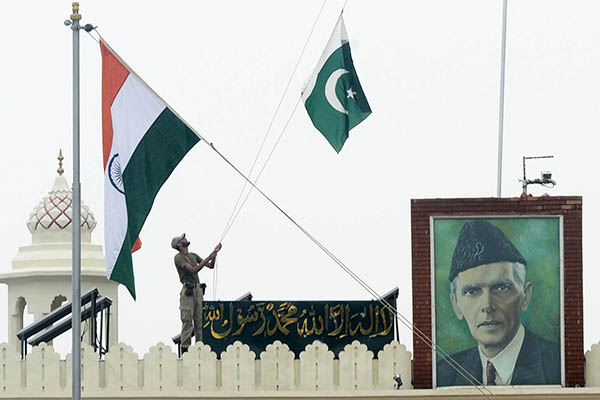
File Photo. Narinder Nanu—AFP
Nationalism must take a backseat to public welfare.
Shahid Javed Burki, a former caretaker finance minister of Pakistan and former vice president of the World Bank has meditated in a recent column on how a state’s “national interest” can cause decline in the welfare of its people. He refers to the “Nash equilibrium,” named after Nobel laureate John Nash, which says, “National interest and public welfare are not always overlapping objectives.”
The national interest in the U.K. says get out the European Union, but the economist stubbornly warns that this would cost £100 billion annually. A good example of toning down national interest for the sake of the people is the Indus Waters Treaty (1960) under which India and Pakistan divided up the rivers (a “second-best solution”) rather than pay heed to “national interest.” The proof of that wisdom is that today warmongering nationalists on both sides condemn the treaty, but prosperity has come to populations on both sides as agricultural economies have flourished.
Burki thinks states should strike a midway deal: “The search for equilibrium may mean that the contestants settle for not achieving the best outcome they want, but the second best.” Clearly, the villain here is nationalism that, in its many hidden folds, aspires to conquest. All nationalism is isolationist because no one accepts the condition of war: “No country and no people can live in isolation, even if that happens to be their preference.” The message is: focus on the welfare of the people and subordinate “national interest” to it.
One can say that the most rooted national interest in Pakistan is connected with the cause of “Kashmir freedom.” In Afghanistan, it is connected with the undoing of the Durand Line. Both must find a “second best” solution for the sake of their populations.
